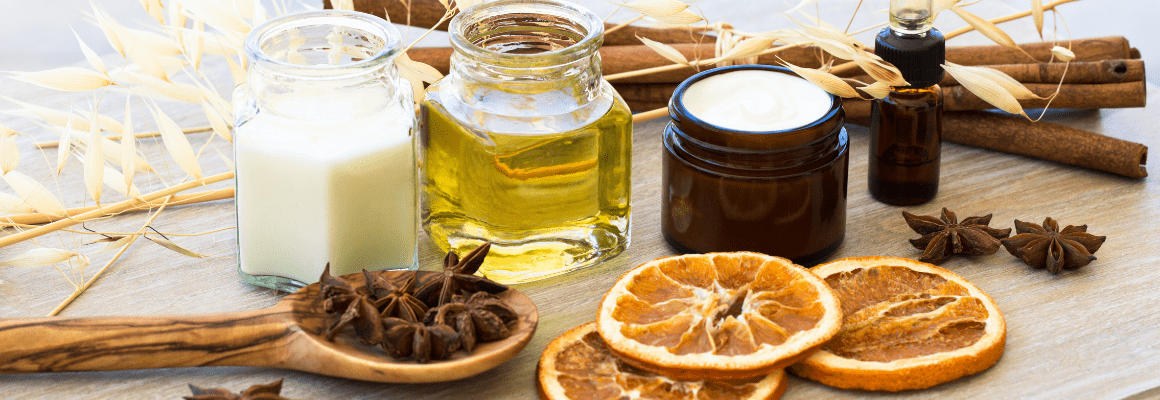Are you suffering from dry and itchy skin? While dry skin is often uncomfortable, it is not usually a severe problem. Many people are born with naturally dry skin, while others may experience dry skin because of exposure to cold temperatures, chronic skin conditions like eczema, and even pregnancy. Fortunately, dry skin is usually just a temporary problem that can improve with some lifestyle changes and natural moisturizers. In this post, we’ll go over some common reasons you may be experiencing dry skin and provide some tips to manage symptoms better.
Dealing with Dry and Itchy Skin
There could be several reasons why you’re experiencing dry and itchy skin. A prime reason may be that you have an inflammatory skin condition like eczema. Due to a damaged skin barrier that has trouble retaining moisture, those with eczema suffer from chronically dry skin that is often intensely itchy as a result. Symptoms include patches of red, flaky, and scaly skin all over your body.
Another reason could be age. The older we get, our bodies naturally produce less oil. Research indicates that approximately 50% of adults over age 40 suffer from dry skin. The weather may also have something to do with it. Many people note that their skin feels drier and subsequently itchier during the cold winter months. With lower humidity levels and cooler temperatures, there is naturally less moisture in the air, resulting in dry, cracked, and itchy skin.
Dry skin can also result from pregnancy due to a change in hormones that causes the skin to lose elasticity and moisture. While dry skin in pregnant women is more common on the stomach, it can also extend to other parts of the body like the thighs, breasts, and arms.
The Best Natural Ingredients for Sensitive Skin
It’s no secret that we are big believers in natural ingredients for dry skin. That’s why we love skincare products that contain certified organic ingredients like aloe vera and coconut oil. Cooling and refreshing, aloe vera has been used for hundreds of years to treat dermal issues like sunburn. But as a natural moisturizer, it can also help relieve the itchiness associated with dry skin. The gel from its leaves, which contains over 75 nutrients, can help reduce inflammation, soothe eczema or psoriasis symptoms, and even boost the immune system.
Coconut oil is also beneficial in moisturizing dry skin because of its ability to quickly penetrate the skin. It helps provide a quick boost of much-needed moisture, which can help relieve dryness and reduce itchy skin. What’s more, if relentless scratching causes the skin to crack or bleed, coconut oil can help reduce the risk of infection thanks to its antimicrobial properties.
The Importance of Clean Beauty
Clean beauty is a movement that puts the health of our skin and our planet first by emphasizing natural products. It focuses on using organic and natural ingredients that are good for your skin and the earth. It also focuses on certified products free from cheap fillers, toxic chemicals, and mystery ingredients. By nourishing your body with clean ingredients, your skin will develop a natural healthy glow as fewer toxins and chemicals will find their way into your bloodstream. As well, fewer chemicals and toxins will find their way back into our earth.
When you shop for clean beauty, you know what is going into your body because transparency is critical. You will also know exactly how the product is made, including its impact on the environment. That’s because clean beauty products hold companies accountable for their production processes, ethical standards, and safety regulations. Also, clean beauty lines do not test on animals and are GMO-free.
Thankfully, more and more skincare companies are turning towards the clean beauty movement and embracing its values. It’s essential to do your due diligence and read labels carefully to ensure that the products you are using are what they claim to be. Sadly, terms like ‘organic’ and ‘natural’ are used very loosely when describing products to appear better than they are. However, by being a conscious shopper and continuing to hold companies accountable, we can all do our part in protecting our skin and our planet.
What to Look for in a Moisturizer
With so many products out there, it can be difficult and perhaps overwhelming to find moisturizers that will help your dry skin. The truth is that not all moisturizers are created equal. It’s so important to educate yourself on what makes a moisturizer effective. It’s also essential to read labels carefully to ensure that what you are putting on your skin is right for your body. Our general rule of thumb is that it probably isn’t good for you if you can't pronounce the ingredient.
We can categorize moisturizers into three different types: creams, ointments, and lotions. They are placed in a category depending on how much water and oil they contain. The more oil a product has, the better it will be at hydrating your skin. Often, this may give a moisturizer a greasy feel.
Because ointments have the highest oil content, they are the most effective at preventing water loss and hydrating the skin. Therefore, if you suffer from dehydrated skin, an ointment might be the best choice for you. Creams come next. Because they have less oil than ointments, they are less greasy to the touch. Lotions contain the least amount of oil. With water being the main ingredients, they are the least effective at hydrating dry skin as the water tends to evaporate quickly.
When reading labels, look out for skin-friendly ingredients like shea butter, glycerin, and lanolin. These ingredients boost hydration by drawing moisture from the air to your skin without irritating it. You should also look for moisturizers containing SPF to protect the skin from harmful UV rays from the sun.
Last but not least, remember that your skin needs may change over time as your skin changes and ages. Also, remember that there is no golden answer to skincare. What works for someone else may not necessarily help you. It may take some trial and error to find the perfect products that work best for you.
The Benefits of Honey for Dry Skin
Did you know honey is a healing superpower? This sweet substance is truly a gift from nature. While honey cannot cure eczema, psoriasis, or other skin conditions, it certainly offers many health benefits. No wonder humans have been using honey to treat a variety of dermal issues for hundreds of years!
Honey is rich in antioxidants which gives it anti-aging benefits. For this reason, many people use honey to prevent or reduce the appearance of wrinkles. It is also antibacterial, which helps prevent and treat acne. These antibacterial properties also reduce the risk of infection if persistent scratching causes the skin to crack or bleed. Finally, honey is exceptionally moisturizing and cleansing. Its ability to open the pores helps give your skin a complexion boost and relieves combat dryness. Honey’s natural ability to provide the skin with a quick boost of moisture makes it very effective at treating dry and itchy skin conditions like eczema and psoriasis.
In particular, we are big fans of Manuka honey. Native to New Zealand, this type of honey differs from traditional honey because it contains 1000 times more methylglyoxal. This unique enzyme is what gives honey its antibacterial and anti-inflammatory properties.
You can apply honey directly to the skin, but this tends to get sticky. Because of this, we prefer to use honey in a cream or moisturizer.
The Best Natural Dry Skin Cream
When it comes to hydrating dry skin, nothing does it better than our Organic Manuka Skin Soothing Cream made with just six ingredients, all hand-picked because of their known soothing abilities. Ingredients include organic olive oil, organic beeswax, filtered water, grape seed oil, organic Active 16+ New Zealand Manuka honey, and Manuka oil extract. This nourishing oil-based balm is so gentle that it can be used anywhere on the body, including the most delicate areas like lips and eyelids. It’s even gentle enough for little ones! Kids love its soft texture and sweet honey smell. Plus, its non-burning, non-stinging formula certainly helps make it a fan favorite.
When it comes to skincare, less really is more. Pure and wholesome ingredients mean that there’s less chance your sensitive skin will react negatively. Not only is this soothing cream EWG Skin Deep 1 Rated and certified by doctors, but it’s also nut-free, gluten-free, and GMO-free. Best of all, all ingredients were hand-picked by an eczema mother searching for a solution to heal her son’s eczema.
This oil-based balm can help relieve symptoms of eczema, psoriasis, rosacea, diaper rash, burns, acne, cuts or scrapes, allergy-prone skin, and of course, dry skin. It’s our best-selling product because of its ability to moisturize even the driest of skin.
Because it is 100% natural, there’s little chance that your skin will experience a reaction. However, we understand that everybody is different and what works for someone else may not necessarily work for you. For this reason, we recommend you always do a small patch test when first trying out new products to make sure that your skin does not react negatively.
Skincare Tips for Soothing Dry Skin
In addition to applying a natural moisturizer, here are some ways you can care for your dry skin:
- Try Wet Wrap Therapy: Wet wrap therapy is an effective at-home remedy for dealing with dry skin. It helps reduce itching by providing the skin with a boost of hydration. The process is simple:
- Apply a natural moisturizer, like the Organic Manuka Skin Soothing Cream mentioned above, to the patch of dry skin.
- Wrap the affected area with a wet piece of clothing. The damp layer allows the emollient to permeate the skin better. We recommend these hypoallergenic sleeves as they are perfect for spot-treating difficult areas such as bends of elbows and creases of knees.
- Cover the wet piece of clothing with a dry layer overtop.
- Leave the wraps on overnight or for a minimum of two hours. Once you remove the wraps, don’t forget to moisturize one more time.
- Reduce Shower Times: As tempting as a long, hot shower may sound; it is not the best thing for dry skin because water has a drying effect on the body. For this reason, we recommend reducing shower times to 5-10 minutes and using lukewarm water instead of hot. Be sure to wash with a natural soap and avoid any harsh rubbing. After your shower, be sure to pat dry your body with a towel to prevent aggravating any symptoms. We also recommend applying a moisturizer after showing to help combat the drying effects of water.
- Take a Colloidal Oatmeal Bath: Colloidal oatmeal is finely ground oatmeal that dissolves easily in water. It makes an excellent solution for treating dry skin and beating the itch. Draw up a lukewarm bath and add the oatmeal to the water as the tub is filling. To create your own treatment, grind 2-3 cups of the oatmeal in a coffee grinder or food processor. Then sit back, relax, and enjoy this soothing remedy for dry skin.










